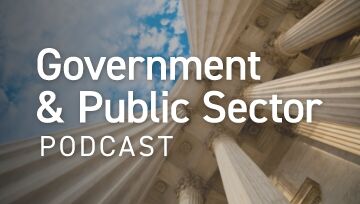The Sarbanes-Oxley Act of 2002 (SOX) was enacted “to protect investors by improving the accuracy and reliability of corporate reporting” following a series of corporate accounting scandals that threatened public confidence in financial reporting. SOX was designed and implemented during a time when accounting and finance functions operated in traditional office environments, where much of the work was manual and lacked various software and automation tools available today. The advent of these technological advancements, coupled with the shift to remote work accelerated by the pandemic, has introduced new challenges and risks for SOX compliance.
Key Challenges in a Remote Work Environment
Decentralization of the Work Environment
Remote work has transformed the way finance departments communicate and monitor daily activities. What was once characterized by in-person, face-to-face meetings and frequent interactions has now shifted to virtual and less frequent communication. This change has introduced challenges in maintaining consistent performance of internal controls across multiple locations and in implementing an effective framework to monitor the control environment.
Lack of Proper Technology
Many companies are trying to create a SOX function operating across various locations without the necessary tools or processes designed to manage such a structure. Direct oversight becomes more difficult without the appropriate centralized tools, such as a Governance, Risk and Compliance (GRC) software platform that tracks compliance activities, control testing and reporting processes.
Document Retention and Archiving
A remote working environment can present challenges in document retention and archiving, especially if organizations have not established clear policies and procedures for electronic document storage, regular backups and disaster recovery plans. Additionally, the lack of secure document-sharing and collaboration tools can further complicate these challenges.
Cybersecurity and Data Privacy
Remote work, often spread across many locations, heightens the risks of cyberattacks, data breaches and unauthorized access to sensitive information. Organizations should assess their cybersecurity measures and other data security policies to decide whether or not they are suited for a remote environment.
Policies to consider include:
- Strong Password Policies and Multi-Factor Authentication
- Regular Security Awareness Training for Employees
- Endpoint Security Solutions to Protect Remote Devices
- Incident Response Plans to Address Security Breaches Promptly
- Strict Access Controls to Sensitive Systems
- Implementing Regular Reviews of User Access Permissions
Outdated Risk Assessments
A change in the work environment introduces new risks within the compliance function, but many companies do not refresh their risk assessment to identify and assess these risks. Companies should ensure that their annual risk assessment process includes a focused, intentional effort to acknowledge and assess these new risks. This process should determine the likelihood and impact of these risks on financial reporting.
Strategies for Maintaining SOX Compliance in Remote Work
As organizations continue to embrace remote work, maintaining SOX compliance has become increasingly challenging. The shift from traditional office settings to decentralized work environments introduces new risks and complexities that must be addressed to ensure financial integrity and regulatory adherence. To navigate these challenges effectively, companies need to adopt tailored strategies that account for the unique aspects of remote work.
There are key strategies for maintaining SOX compliance in a remote work environment, focusing on areas such as technology, communication, ongoing training, risk assessments and a robust cybersecurity program. By implementing these strategies, organizations can strengthen their compliance efforts and mitigate the risks associated with remote work. Here are some key strategies to embrace:
Strong Internal Controls and Regular Audits & Assessments
Maintaining strong internal controls is essential for ensuring SOX compliance in a remote work environment. This involves establishing a robust system of internal controls and conducting regular reviews and updates to ensure their effectiveness. Regular audits and assessments, both internal and external, are crucial for identifying and addressing any compliance gaps that may arise. These audits help organizations stay on top of their compliance obligations and make necessary adjustments to their processes.
Technology Solutions
Leveraging technology solutions can significantly enhance compliance efforts. Enterprise Resource Planning (ERP) tools, Governance, Risk and Compliance (GRC) software, cloud-based audit and compliance solutions, automated workflow tools, and advanced cybersecurity tools are vital in streamlining compliance activities and ensuring data security. These technologies provide centralized platforms for tracking compliance activities, control testing and reporting processes, making it easier to manage compliance across different locations.
Third-Party Risk Management
Third-party Risk Management (TPRM) is another critical aspect of maintaining SOX compliance. Organizations must implement strong controls to manage risks associated with third-party service providers. This includes conducting thorough due diligence and monitoring third-party activities, ensuring they adhere to the organization's compliance standards.
Effective Communication
Effective communication is key to maintaining SOX compliance in a remote work environment. Encouraging and maintaining open communication channels between management, employees and external auditors ensures everyone is on the same page and aware of their compliance responsibilities. Regular updates and clear communication help prevent misunderstandings and ensure compliance efforts are coordinated and effective.
Employee Training
Providing regular training to employees on SOX requirements, cybersecurity best practices and data privacy regulations is essential. Training ensures that employees know their compliance obligations and are equipped with the knowledge and skills needed to adhere to them. Regular training sessions help reinforce the importance of compliance and keep employees updated on any changes to regulations or internal policies.
How Cherry Bekaert Can Help
By proactively addressing the challenges posed by technological advancements and remote work, organizations can maintain SOX compliance and protect their reputation. Cherry Bekaert’s Risk & Accounting Advisory consultants provide SOX compliance services. They can assess your entire SOX program and identify areas where you need to strengthen internal controls to combat the challenges of remote work, including safeguarding financial data, implementing controls and meeting all SOX compliance requirements. Our experienced consultants can also help with identifying and implementing the right ERP program to bring your remote accounting and finance function up to speed with your growth needs.
Additionally, Cherry Bekaert’s Information Assurance & Cybersecurity team can help you navigate the complexities of data privacy and cybersecurity that are associated with remote work including TPRM management, creating and implementing incident response plans, cybersecurity risk process improvement, artificial intelligence risk management, offensive security services and attestation and certifications including SOC, HITRUST and CMMC. Contact Cherry Bekaert today to learn how we can help safeguard your company during the era of remote work.







